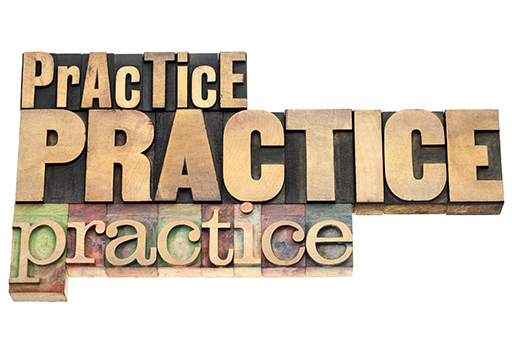6 Interview question practice
Interviews are conversations with a purpose. Your job as the interviewee is to give as good an account of yourself as you can, so that the interviewer can fairly assess that you match their needs. Preparation helps you to avoid feeling under pressure to respond before you feel ready.
Preparing involves two main activities:
- Anticipating what questions you might be asked
- Constructing answers for them.
By doing this, you focus your ideas so that you are ready to give clear and strong answers to the questions you may be asked.
It can be helpful to write down your possible answers, giving evidence from your experience to support what you say. You may remember them better. Have a go at this in the next activity.
Activity 5 Interview answer practice
This activity encourages you to practice developing answers to commonly asked interview questions. As you write your answers try to make them general enough to give as a response to more than one question. Prepare more than one example to illustrate your main points. You may be asked for more than one or be asked the same question in different ways and you should avoid having to repeat yourself.
There are seven question areas suggested below, each with typical questions which might be asked.
Choose at least three questions to answer.
About you
- A common question that can throw a lot of people is 'Tell me about yourself'.
- Think carefully about this one. How do you put yourself in the most positive light without giving them your life history? Try to come up with an answer that will take less than two minutes.
About your skills
- Tell me about your IT skills. Can you give an example of when you have had to use them in your study or work?
- Questions about your skills will relate to the specific job, so make sure you are familiar with all the skills required for the job and have your examples ready as proof of your abilities.
About your work experience
- What were your main responsibilities at your last job?
About your non-work interests
- What appeals to you most about caving/cooking/gardening?
About the organisation/employer/sector
- What do you know about our organisation/company/project? Where do you see it in five years' time?
Obviously, your answer to this question would depend on the specific opportunity you were pursuing but write down the kind of things you would like to be able to say. For instance, you might want to say something about the profitability of a company or the history of a charity.
About the job
- What do you know about the job?
Again, unless you have a specific job in mind, think generally here. For example, you might want to say that you’ve spoken to your cousin who does this kind of work and learned that it involves marketing or that you noticed from the job description that the emphasis seems to be on administration and social media.
Your future
- Where do you see yourself in a year's/five years' time?
Write down your chosen questions and answers in your notebook.
Comment
Some of these questions are general, so will provide you with a good start for any interview. Others are more specific but will have still given you an idea of what you need to prepare for.
The next section covers the different types of questions you can be asked.

